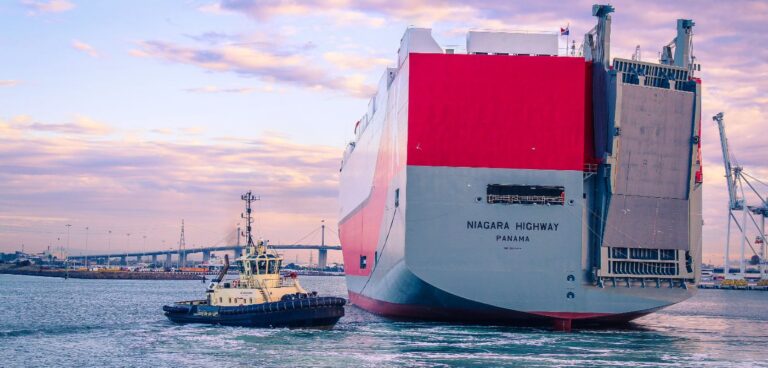Global towage operator Svitzer – part of A P Moller-Maersk – has revealed details of a new decarbonization strategy which will see the company become fully carbon neutral by 2040.
The strategy will involve Svitzer decarbonizing company operations in two phases, beginning with the reduction of the CO2 intensity of its entire fleet by 50% by 2030, laying a path for fully carbon neutral operations in 2040.
Additionally, the company aims to embed sustainability throughout the business, its fleet, and through the types of fuel used by its vessels. Svitzer will measure its progress against 2020 levels which saw the company’s fleet of an estimated 400 vessels emit 280,000 metric tons of CO2.
To date, the company has already implemented process changes to improve fleet efficiency, such as asking crew members to optimize vessel speed during tug mobilization and demobilization. By doing so, 255 metric tons of Marine Gas Oil (Diesel) has been saved in the UK alone. Other such initiatives to reduce emissions include improved vessel connectivity, integrated performance monitoring across the fleet and improvements to scheduling optimization.
The fuel mix of the company’s fleet will also undergo changes following the success of Svitzer’s EcoTow project, which saw its entire fleets in London, Felixstowe and Southampton switch to low-carbon biofuels. The initiative is now being copied across company operations. Furthermore, methanol will also be explored as a fuel for towage vessels ahead of the company’s fleets being renewed to enable the retrofitting of systems capable of operating on low carbon fuels.
New vessel designs will also be introduced, such as the new TRAnsverse Tug designed by Robert Allan to improve fleet efficiency. The tug can generate higher steering forces than most designs of similar dimensions in a smaller, nimbler package – reducing the environmental footprint. The vessels are scheduled to enter operations in Q3 2023.
“We are proud to unveil our strategy to become fully carbon neutral by 2040,” commented Kasper Nilaus, CEO, Svitzer. “We are not committing to these ambitions lightly and understand that it will require leadership and collaboration with our customers, suppliers, industry peers, and ports around the world to ensure success. Widespread changes and investment into the way we work, the fuel we burn, and the composition of our fleet will be required.
“The work has already started, and the whole team at Svitzer is invigorated by the opportunity to contribute to solving this truly global challenge. We hope that by leading the way for towage we will be able to generate the cleaner, greener future that our children, our industry, ports around the globe and our oceans deserve. We recognize that we can’t do this alone. Collaboration and partnerships with our customers and suppliers will be key, and we look forward to taking the industry along with us in our journey to become carbon neutral by 2040.”
Gareth Prowse, head of decarbonization at Svitzer, added, “The decarbonization strategy we are launching today is ambitious and sets a clear roadmap for Svitzer but, most importantly, it is absolutely achievable if we focus on the right areas to generate real progress. That is why we have split our strategy into three pillars: behavior, equipment and fuel, and we will focus on each of these in a step change fashion to bring about carbon neutrality in a way that works for our customers and maintains the high level of service Svitzer is known for.”



